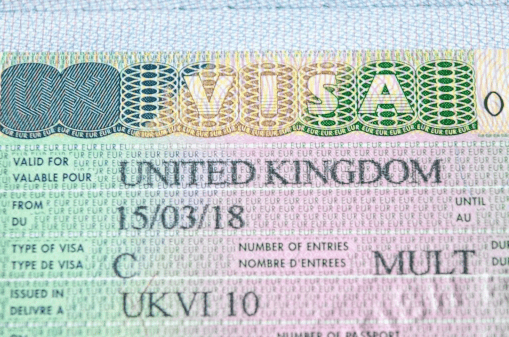UK visa restrictions for overstayers could soon tighten under a fresh crackdown by the government, targeting individuals who enter legally but later claim asylum. The move comes as part of new immigration reforms aimed at curbing what ministers describe as “abuse of the system”.
Government Prepares Crackdown on Asylum Claims from Legal Entrants
According to plans expected in a forthcoming Home Office white paper, nationals from countries including Pakistan, Nigeria, and Sri Lanka may face tougher entry conditions for work and study routes.
Ministers are concerned about an apparent rise in people entering the UK legally, only to later lodge asylum claims, potentially allowing them to remain in the country indefinitely.
A Home Office spokesperson said: “Our upcoming Immigration White Paper will set out a comprehensive plan to restore order to our broken immigration system.”
No Recent Data on Visa Overstayers
The specific nationalities most likely to overstay remain unclear. The Home Office has not released updated exit check data since 2020, citing concerns over data accuracy. Many departures go unrecorded, so the absence of an exit record does not confirm that an individual is still in the country.
Prof Jonathan Portes, a senior fellow at the think tank UK in a Changing Europe, commented on the policy’s likely impact, stating: “I think the impact here is not designed primarily to be about numbers overall, it’s designed to be about reducing asylum claims which are perceived to be abusive.
When you have someone who comes here ostensibly as a student and then switches quickly to the asylum route… that is an abuse of the system – the government is trying to reduce that.”
Asylum Claims at Record Levels
Last year saw more than 108,000 asylum applications in the UK, marking the highest annual figure since 1979.
- Pakistan topped the list with 10,542 applicants
- Sri Lanka followed with 2,862
- Nigeria came close behind with 2,841
In 2023/24, the UK hosted over 732,000 international students, primarily from India (107,480) and China (98,400). Despite these numbers, the total issued work and study visas declined compared to the previous year.
Political Pressure on Labour to Deliver
Prime Minister Sir Keir Starmer has committed to reducing both legal and illegal migration. However, he has declined to set a net migration cap, arguing past targets had little real-world effect.
Labour’s approach includes:
- Making it a criminal offence to endanger lives at sea
- Cutting dependence on foreign labour by investing in local workforce training
- Cracking down on small boat crossings
Sir Keir recently criticised the Conservatives, accusing them of failing to lower migration “by design, not accident”.
Net migration reached a record 906,000 in the year to June 2023, dropping to 728,000 a year later. The fall is partly attributed to Conservative-era changes, such as raising the salary threshold for skilled workers to £38,700 and restricting dependents for care workers.

Reform UK’s Surge Fuels Urgency
The rise of Reform UK in local elections has added urgency to the immigration debate. The party secured 677 council seats, drawing support away from the traditional parties.
Their manifesto calls for a freeze on non-essential immigration, while still allowing entry for workers in key sectors like healthcare. Reacting to voter sentiment, Starmer said he shared their frustration and vowed to “go further and faster” on reform.
Enver Solomon, CEO of the Refugee Council, raised concerns over the broader implications of the new visa rules.
“Some people on work or study visas may find their lives at risk because the political situation in their home country has changed. It is right that they are protected from harm and given a fair hearing in the asylum system.”
White Paper to Detail Sweeping Reform
The full details of the visa policy changes will be outlined in the Immigration White Paper, expected later this month.
A Home Office spokesperson added: “To tackle abuse by foreign nationals who arrive on work and study visas and go on to claim asylum, we are building intelligence on the profile of these individuals to identify them earlier and faster.
We keep the visa system under constant review and will where we detect trends, which may undermine our immigration rules, we will not hesitate to take action.”
The government’s promise: to restore order to an immigration system many believe is no longer fit for purpose.






